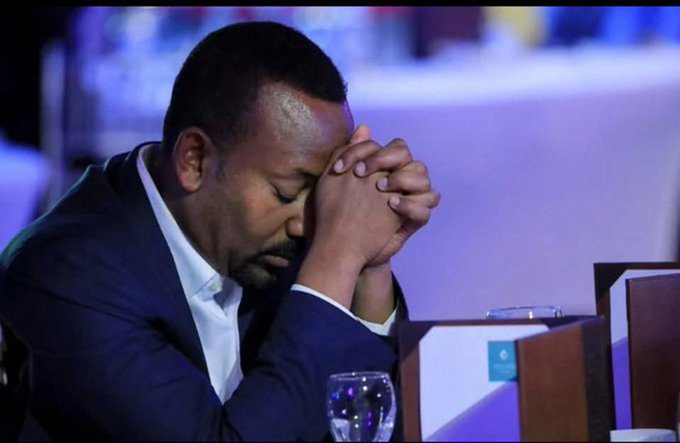"Abiy Ahmed's Day of Reckoning: Will Ethiopia's Leader Face Justice for Alleged Crimes?"
INTRODUCTIONIn the volatile world of politics, few names have sparked as much controversy as Abiy Ahmed, the Ethiopian leader whose meteoric rise to power has been marred by allegations of grievous crimes. Once hailed as a champion of peace in the Horn of Africa, Abiy Ahmed's tenure has been plagued by accusations of human rights violations, political maneuvering, and ethnic cleansing. As the international community demands accountability, one question echoes through the corridors of power: will Abiy Ahmed answer for his alleged crimes before God?
KEY POINTS AND ANALYSIS
The allegations against Abiy Ahmed are staggering. International human rights organizations accuse his administration of orchestrating acts of ethnic cleansing, using extreme force against civilians, and perpetrating massacres, sexual violence, and forced displacement in the Tigray and Amhara regions. The conflict, which began in 2020, has resulted in blockades on aid, mass detainment without trial, and indiscriminate shelling of civilians. The Ethiopian leader's handling of political opposition has also raised concerns, with reports of detentions and suppression of freedom. At the heart of these allegations is a pattern of systemic repression, reminiscent of authoritarian regimes. The use of starvation tactics, intentional cutting off of essential services, and forced displacement are believed to be intentional strategies aimed at subjugating populations under fear and submission.
CONTEXT AND BACKGROUND INFORMATION
The conflict in Tigray and Amhara has its roots in November 2020, when Abiy Ahmed's government launched a military offensive against the Tigray People's Liberation Front (TPLF). The conflict escalated into 2023, with reports of widespread human rights abuses and war crimes. The international community has been vocal in its condemnation, with the United States, European Union, and human rights organizations calling for thorough investigations and accountability. Abiy Ahmed's fall from grace is a stark reminder of the dangers of unchecked power. His once-celebrated efforts to broker peace in the Horn of Africa have given way to accusations of authoritarianism and human rights abuses. The Ethiopian leader's fate serves as a cautionary tale for leaders around the world: that the mantle of power comes with a heavy responsibility to uphold human rights and dignity.
CONCLUSION OR FUTURE IMPLICATIONS
As the world watches, Abiy Ahmed's future hangs in the balance. Will he face justice for his alleged crimes, or will he escape accountability? The answer lies in the collective will of the international community to demand transparency and accountability. The stakes are high, not just for Ethiopia, but for the entire region. As the geopolitical stability of the Horn of Africa hangs in the balance, one thing is clear: Abiy Ahmed's day of reckoning is near.
